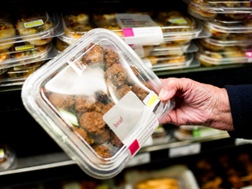
Hydrolyzed vegetable protein, known in the industry as HVP, is a flavor enhancer used in a wide variety of processed foods from soups and stews to sauces and hot dogs. Seasoned snack foods and dressings also contain HVP for flavor enhancement.
Salmonella Tennessee contamination was found in samples of HVP produced by Basic Food Flavors Inc., a company based in Las Vegas, Nevada. According to CNN, the problem came to light in early February when a Basic Foods customer tested the product, found it to be contaminated and alerted the FDA.
As a result, all bulk HVP produced by the company since September 17, 2009, has been affected and recalled. What will happen with the potentially contaminated products that have already been purchased is another matter.
"Many of the foods that incorporated this product at very low levels have kill steps in place that would eliminate salmonella," said Dr. Joshua Sharfstein, FDA's principal deputy commissioner, referring to cooking and preparation instructions that, when followed, are expected to kill any bacteria present.
Products that are eaten raw, however, could pose significant health hazards. Those products may be subject to recall, according to an ever-evolving list of products posted on the FDA website. An FDA spokesperson said that the list could continue to evolve for days, if not weeks.
"The manufacturer had many first-level consignees who obviously had individuals and firms that they sold to," said Dr. Jeff Farrar, associate commissioner for food safety in the FDA's Office of Foods. "We expect this to get larger over the next several days to, actually, maybe several weeks."
The FDA says that no illnesses have been reported at this juncture. "We are working hard to respond to this particular outbreak; we also are working hard to put in place the kinds of preventive control measures to prevent this kind of contamination from happening in the first place," said FDA Commissioner Hamburg.
READ MORE FOODBORNE ILLNESS LEGAL NEWS
Erik Olson, director of food and consumer product safety at The Pew Charitable Trusts, notes that "the existing law is basically a reactive law. If you find contamination problems, the FDA reacts and goes out and tries to find the problem and asks for a voluntary recall."
Even the FDA's Jeff Farrar admits that improvements need to be made. "This situation clearly underscores the need for new food safety legislation to equip FDA with the tools we need to prevent contamination," he said.
